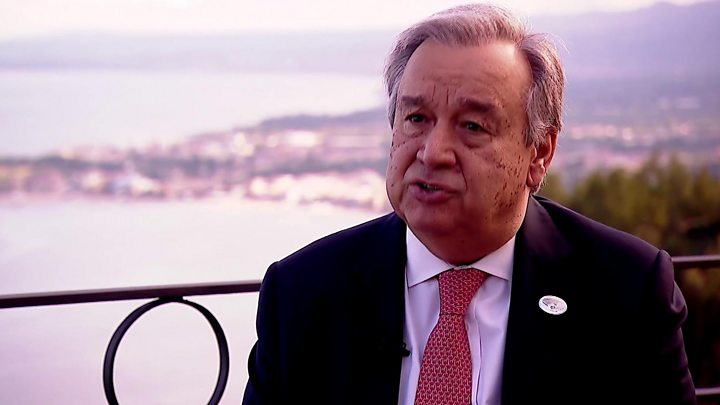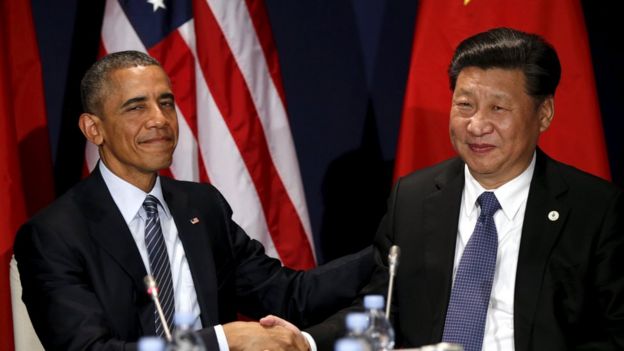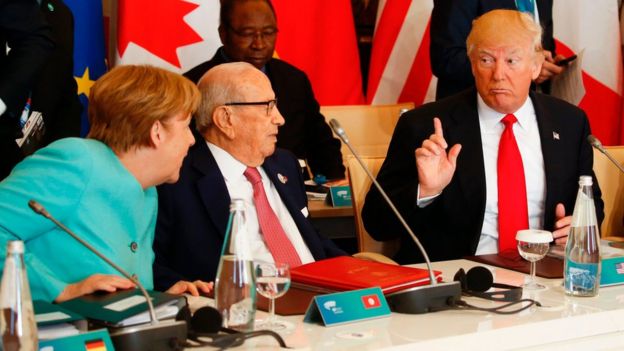
Donald Trump has said he will decide whether to pull out of a key climate change deal in the next week, having apparently shrugged off pressure from US allies in recent days.
The US president tweeted he would make his "final decision" on the Paris accord after his return to Washington.
Mr Trump left the G7 summit in Sicily on Saturday without reaffirming his commitment to the accord, unlike the other six world leaders in attendance.
He previously threatened to pull out.
Mr Trump, who has called climate change "a hoax" on occasion, has reportedly indicated this is still his position to key members of his inner circle.
The uncertainty over his position on the Paris agreement puts him at odds with other members of the G7.
What is the Paris accord?
The Paris deal is the world's first comprehensive climate agreement, set out in 2015, with the aim of keeping the global average rise in temperatures below 2C.
In order to do that, countries pledged to reduce their carbon emissions.
 REUTERS
REUTERS
But it came into force only after being ratified by 55 countries, which between them produce 55% of global carbon emissions.
Barack Obama signed the US up in September 2016, and members of the G7 are keen for the US to continue to back it, not least because the country is the second largest emitter of greenhouse gasses after China.
Why doesn't Donald Trump like the agreement?
Mr Trump told voters on the campaign trail he wanted to scrap agreements "contrary to the national interest", while repeatedly promising to strengthen the coal industry.
Coal power is a major contributor to carbon emissions. However, Mr Trump wants to boost coal production to create more jobs.
He has also expressed doubt about the causes of climate change, saying it is a "hoax" made up by China.
Will the US withdraw?
The Axios news site suggests Mr Trump is leaning that way currently, citing three sources who say his mind is made up, and that the wheels are quietly being put in motion behind the scenes.
This is despite US defence secretary James Mattis saying in an interview to air on Sunday that the president is now "wide open" on the issue.
Withdrawal would risk making Mr Trump unpopular not only with his allies abroad, but also with activists at home.
 AFP
AFP
It was noted his attitude to climate change was one of the major hurdles during the summit in Sicily - the first time he has met his fellow G7 leaders as a group.
His stance left him isolated, with Mr Trump's reluctance to reaffirm his commitment clearly annoying German chancellor Angela Merkel, who told reporters: "The entire discussion about climate was very difficult, if not to say very dissatisfying."
What would be the effect?
There are fears the US pulling out may lead to other, smaller countries following suit.
Even if they do not, as the US has such a large carbon footprint, it will mean the impact of the agreement will likely be lessened significantly.
Whatever the US chooses, the EU, India and China say they will stick to their pledges made in Paris.
And what's more, some of Mr Trump's own country is likely to ignore his scepticism.
New York and California have already pledged to combat climate change without the Trump administration's support.